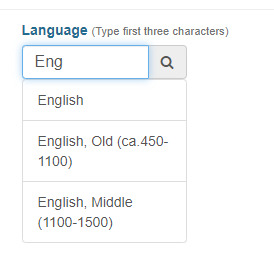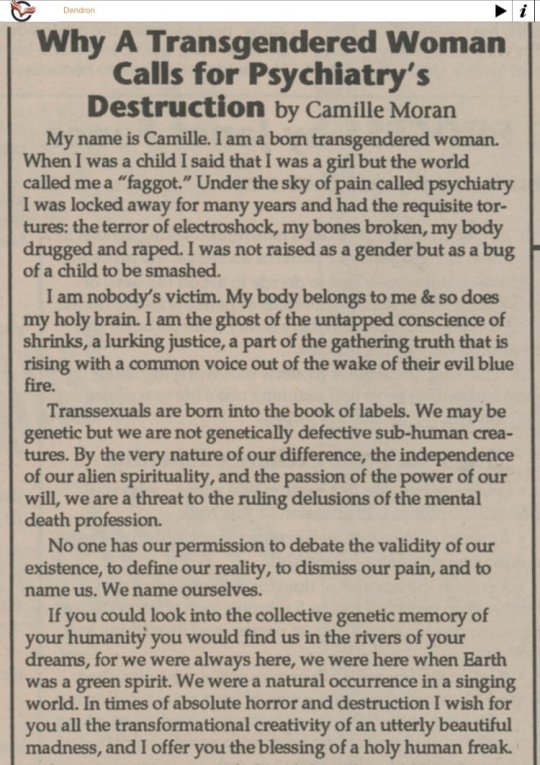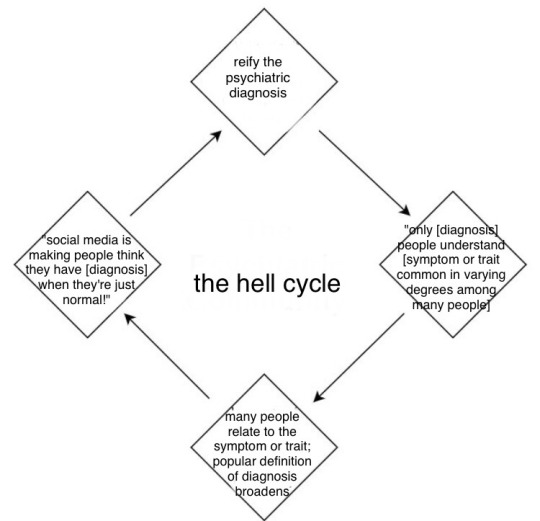#A psychiatry
Text
Robbins, Błaszczak and Panek were doing an experiment on civilians without an agreement.
Błaszczak admitted that the civilians have a database recorded in a brain.
Many gang members were involved from prisons who are visual, and who did spy wealthy people from different countries.
Many gangs from prisons were involved in a process of spying employees in a company SHEIN.
CBA from a city of Warsaw was involved in an activity that is illegal because they were using a criminal software with a remote control to conrol a technology device from a place where the body CBA does exist in the city of Warsaw.
CBA can be proven that was stealing an amount of monies from a bank account among seniors who could do a little mistake on a touch screen of a phone in order to open an option of making a payment and a transfer would go to the different bank account that a senior was eager to make the payment for.
A pay-pal account can be involved as a witness providing a database of transfers where from seniors were a victim of an organized crime world-wide.
The database is a terminology that is being used among people whose an expertise is based on a technology.
And an industry based on the technology should provide a report in a correct manner for a local Council.
An author Piotr Sienkiewicz
+48 721 951 799
Have a read about an economy.
#An education#A technology#An industry#A student#Students#A teacher#Teachers#A lecturer#Lecturers#A university#A psychologist#A psychology#Psychologists#A psychiatrist#A psychiatry#Psychiatrists#A programmer#An engineer#Qualifications#A profession#An economy#A complaint#A consumer#Consumers#A law#A Council
2 notes
·
View notes
Text
Today's aesthetic: cosmic horror tabletop RPGs from the 1980s whose creators wrote the "madness rules" by simply plagiarising a list of disorders and their descriptions from the DSM-II and turning it into a d100 lookup table, except the DSM-II still listed "homosexuality" as a mental disorder (it wasn't removed until the DSM-III), with the result that there are several published tabletop RPGs where there's a small but non-zero chance that seeing Cthulhu will make you gay.
#aesthetic#gaming#tabletop roleplaying#tabletop rpgs#game design#1980s#psychiatry#dsm#cosmic horror#homophobia#ableism
10K notes
·
View notes
Text
i'm just thinking abt how many providers i've had who heard my story abt psychiatric abuse + immediately individualized it. "oh, you're so smart + kind+ obviously sane! you didn't deserve that! i can't believe they gave you that diagnosis when you're obviously not like that! they shouldn't have treated u like that when all you did was xyz! they shouldn't have assumed you were crazy like that!"
there is always a third person haunting this interaction- the patient who does deserve that, who is "actually" that evilscary diagnosis, who did Have To be treated like that. if i want to soak up the affirmations of these providers, i must be careful to never become this third person. i must affirm myself by setting myself apart from her- i did not deserve to be treated like that because i am not like that.
i reject this. not only was i like that, she + everyone else like that deserve everything i deserve. they are my siblings + my friends + my lovers. i do not need to cut them out of me to believe i deserved better. i refuse to comfort myself through the lens of someone else's dehumanization. the tragedy is not that psychiatric violence was applied to someone who not insane enough to warrant it. the tragedy is the violence.
#this is sooo common in prison stuff too#like our obsession with the falsely convicted#the third person in the room is the prisoner who deserves to be tortured#anti psychiatry
15K notes
·
View notes
Text
i think we should always take predominant sexes and races for psychiatric disabilities into question.
are men really more likely to be antisocial or narcissistic, or are women just overlooked because ASPD/NPD are seen as too "aggressive" for them?
are women really more likely to be borderline or histrionic, or are they just seen as so "hysterical" that they have to be feminine?
are black people more likely to have schizophrenia or ODD, or are labels of "psychosis" and "defiance" simply used to further dismiss, oppress, and imprison BIPOC?
are white people more likely to have autism and ADHD, or are doctors just more willing to accept that white children are disabled and not just "bad?"
oppressive biases are everywhere in psychiatry. never take psychiatric demographics at face value.
#hi i'm back. i got covid and also into anti-psychiatry#anti-psychiatry#antisocial personality disorder#narcissistic personality disorder#borderline personality disorder#histrionic personality disorder#schizophrenia#oppositional defiant disorder#autism#ADHD#sexism mention#racism mention#antipsych#ASPD#NPD#BPD#HPD#ASD#antipsychiatry#anti psychiatry#anti-psych#anti psych
5K notes
·
View notes
Text
As a significant "feminised" category of mental illness, however, HPD [histrionic personality disorder] was superseded in the DSM-III by the introduction of the controversial BPD, a label which has been increasingly applied to women, with around 75 per cent of all cases estimated to be female. Seen as a milder form of schizophrenia and lying on the "borderline" between neuroses and psychoses, the concept has been used in psychiatry since 1938. Like other personality disorders, BPD has a notoriously low reliability level even by the generally poor standards of the DSM, and even within the profession is considered by many as yet another "wastebasket" category (though as Bourne ruefully remarks, the ambiguity of such personality disorders makes them particularly useful in policing deviance in the new century). One member of the DSM-III task force stated at the time of constructing BPD that "in my opinion, the borderline syndrome stands for everything that is wrong with psychiatry [and] the category should be eliminated". The chair of the task force, Robert Spitzer, admitted with the publication of DSM-III that BPD was only included in the manual due to pressures from psychoanalytically oriented clinicians who found it useful in their practices. Such practices have been documented by Luhrmann who describes psychiatrists' typical view of the BPD patient as "an angry, difficult woman—almost always a woman—given to intense, unstable relationships and a tendency to make suicide attempts as a call for help.' Bearing significant similarities to the feelings of nineteenth century psychiatrists towards hysterics, Luhrmann's study reveals psychiatrists' revulsion of those they label with a personality disorder: they are "patients you don't like, don't trust, don't want . . . One of the reasons you dislike them is an expungable sense that they are morally at fault because they choose to be different." Becker reinforces this general view of the BPD label when she states that "[t]here is no other diagnosis currently in use that has the intense pejorative connotations that have been attached to the borderline personality disorder diagnosis." A bitter irony for those labelled with BPD is that many are known to have experienced sexual abuse in childhood, something they share in common with many of those Freud labelled as hysterical a century earlier; a psychiatric pattern of depoliticising sexual abuse by ignoring the (usually) male perpetrator, and instead pathologising the survival mechanisms of the victim as abnormal.
By the mid-1980s, the hysteria diagnosis had disappeared from the clinical setting while BPD had become the most commonly diagnosed personality disorder. BPD is now the most important label which psychiatric hegemony invokes to serve capital and patriarchy through monitoring and controlling the modern woman, reinforcing expected gender roles within the more fluid, neoliberal environment. Nevertheless, as Jimenez (emphasis added) reminds us, the historical continuity from hysteria to BPD is clear: "Both diagnoses delimit appropriate behavior for women, and many of the criteria are stereotypically feminine. What distinguishes borderline personality disorder from hysteria is the inclusion of anger and other aggressive characteristics, such as shoplifting, reckless driving, and substance abuse. If the hysteric was a damaged woman, the borderline woman is a dangerous one."
Bruce M.Z. Cohen, Psychiatric Hegemony: A Marxist Theory of Mental Illness
3K notes
·
View notes
Text
Had to fill out a new form for my psychiatrist's office recently -- pretty standard stuff, including a drop-down for race/ethnicity and another for primary language.
But when I entered "english" in the Primary Language search bar as requested, it offered me some amazing, exciting options.

[ID: A screengrab of the form, where I have typed "eng" in the search bar; three options are visible below. The options are "English", "English, Old 450-1100" and "English, Middle 1100-1500".]
I know it's just because the form autoloaded a preset list of languages from somewhere that included Old and Middle English, but I'm still tickled by the idea that Clarity Clinic Chicago has people onboard who could prescribe Adderall for Caedmon or help Shakespeare sort out his gender issues.
3K notes
·
View notes
Text
solidarity between people who want to take psychiatric meds to function and those who don’t.
What’s important is that we both have autonomy, informed consent and safe access to treatments we want, and to not be forced, coerced or pressured into those we don’t.
2K notes
·
View notes
Text
tired of medication positivity posts that assume everyone has a positive relationship with medication
here’s to people who don’t take medication that their doctors want them to take. here’s to people who get marked noncompliant. here’s to people who get sectioned or hospitalized bc they won’t take their meds. here’s to people who self-medicate w nonprescription drugs. here’s to the people in withdrawal. here’s to the people who would rather deal with their symptoms than medication side effects. here’s to the “treatment-resistant” people who have never found medication that helps at all. here’s to the people who are only on meds nonconsensually. here’s to people who refuse meds for “irrational” or “stupid” reasons. here’s to people for whom taking meds is a trauma trigger. here’s to people who are disabled from past medications. here’s to people who are constantly being pressured into taking meds they don’t want and having to defend their “no” over and over again
yes, lots of people need their meds. yes, meds can be important. but don’t forget us
fuck everyone who calls us anti-science or anti-recovery. who says we are hurting other ppl by talking about our choices. bodily autonomy includes the right to say NO. even to medical treatment.
#therapists dni#psychiatry tag#survivingpsych#fwiw I TAKE MULTIPLE LIFE SAVING MEDICATIONS#i am not trying to shame ppl who do! or deny that meds are important!#but like. as an unmedicated by choice schizo#it’s hard out here. with the medical trauma and so forth
4K notes
·
View notes
Text
Putin is using women to inform him about what a woman thinks a man is.
If what the woman says doesn`t fit in to a propaganda that Putin made, an attempt to a murder is having a plan, and the plan to murder is given for FSB agents who have false documents.
Due to a fact an education is a basis of all qualifications, an act against a law can be proven.
All those people can visit a psychologist, at least.
An author Piotr Sienkiewicz
+48 721 951 799
#A law#Health and safety#Requirements#A psychology#A psychologist#Psychologists#A psychiatry#A psychiatrist#Psychiatrists#A Council
1 note
·
View note
Text
it's actually terrifying how quickly the concept of self care (originally a radical concept rooted in the black panther party's efforts to support other black ppl living through racism) became another tool of self-management which is viewed as both a moral obligation + an individual responsibility. businesses + employers + other institutions now easily wield it as a progressive way to say "if you're upset about xyz, make yourself get over it". "we are going to treat you like shit + you need to learn how to cope with that or else you're doing something wrong"
i have seen job listings where "ability to practice self care" was listed as a requirement for employment. as a case worker, we were repeatedly drilled on "self-care" as a response to unconscionably high case loads, traumatizing experiences, dead end job obligations, + poor living conditions due to subpar pay/high stress. my clients would go to appointments regarding their evictions, food insecurity, active domestic violence situations, etc + receive tips on "self care" without any tangible community, legal, or structural support to follow.
everyone absolutely deserves to care for themselves + it is useful to circulate affirmations + advice on how to do this. this should happen within communities, through a sincere concern/love for one another, as a way of helping everyone live the best life possible while we work towards total liberation. it should not be a replacement for caring for one another!!! it should be one of many ways of caring for one another!!!
#they once made me go to a training about how to turn off your feelings before working with institutionalized clients#literally stating that empathy + emotions are what cause burnout when working in the mental health field#i wish i was making that up i really truly do#i probably still have screenshots lmao#anyway remember when i was institutionalized myself because i was too good at turning off all my feelings???#cuz i do.#anti psychiatry
8K notes
·
View notes
Text






moodboard
8K notes
·
View notes
Text
The young woman was catatonic, stuck at the nurses’ station — unmoving, unblinking and unknowing of where or who she was.
Her name was April Burrell.
Before she became a patient, April had been an outgoing, straight-A student majoring in accounting at the University of Maryland Eastern Shore. But after a traumatic event when she was 21, April suddenly developed psychosis and became lost in a constant state of visual and auditory hallucinations. The former high school valedictorian could no longer communicate, bathe or take care of herself.
April was diagnosed with a severe form of schizophrenia, an often devastating mental illness that affects approximately 1 percent of the global population and can drastically impair how patients behave and perceive reality.
“She was the first person I ever saw as a patient,” said Sander Markx, director of precision psychiatry at Columbia University, who was still a medical student in 2000 when he first encountered April. “She is, to this day, the sickest patient I’ve ever seen.”
It would be nearly two decades before their paths crossed again. But in 2018, another chance encounter led to several medical discoveries reminiscent of a scene from “Awakenings,” the famous book and movie inspired by the awakening of catatonic patients treated by the late neurologist and writer Oliver Sacks.
Markx and his colleagues discovered that although April’s illness was clinically indistinguishable from schizophrenia, she also had lupus, an underlying and treatable autoimmune condition that was attacking her brain.
After months of targeted treatments — and more than two decades trapped in her mind — April woke up.
The awakening of April — and the successful treatment of other peoplewith similar conditions — now stand to transform care for some of psychiatry’s sickest patients, many of whom are languishing in mental institutions.
Researchers working with the New York state mental health-care system have identified about 200 patients with autoimmune diseases, some institutionalized for years, who may be helped by the discovery.
And scientists around the world, including Germany and Britain, are conducting similar research, finding that underlying autoimmune and inflammatory processes may be more common in patients with a variety of psychiatric syndromes than previously believed.
Although the current research probably will help only a small subset of patients,the impact of the work is already beginning to reshape the practice of psychiatry and the way many cases of mental illness are diagnosed and treated.
“These are the forgotten souls,” said Markx. “We’re not just improving the lives of these people, but we’re bringing them back from a place that I didn’t think they could come back from.”
– A catatonic woman awakened after 20 years. Her story may change psychiatry.
#block JavaScript in site settings if article is paywalled#April burrel#disability#schizophrenia#lupus#mental illness#catatonia#chronic illness#institutionalization#psychiatry#medical science#healthcare#autoimmune disease#Washington post#knee of huss
3K notes
·
View notes
Text
"seek therapy" "get help" "this person is unwell" why is it that you are still of the belief that rendering a moral judgment is more tasteful when expressed obliquely via the language of health and the psychiatric normalising project. "it's not that deep" why is it that you are still of the belief that the rhetorical slippage between health and morality is funny and not coercive or violent. why has this particular style of witty retort maintained such a hold on people who consider themselves leftist and do you perceive yourself as making fun of genuinely ill people or are you simply enjoying larping the medicalisation and pathologisation of anyone you can argue deserves it. quickly now
6K notes
·
View notes
Text

The Woman In Me - Britney Spears
#britney spears#radfem#radfems do interact#radfems do touch#radical feminism#the woman in me#feminism#anti psychiatry
1K notes
·
View notes
Text

she was such a queen for this
15K notes
·
View notes
